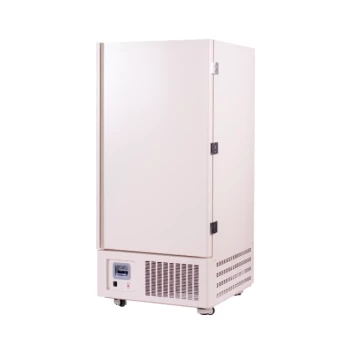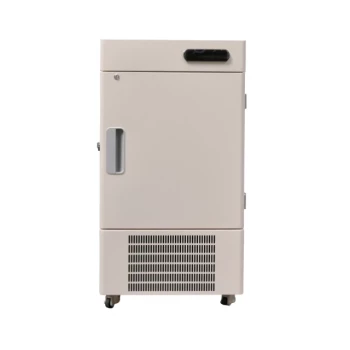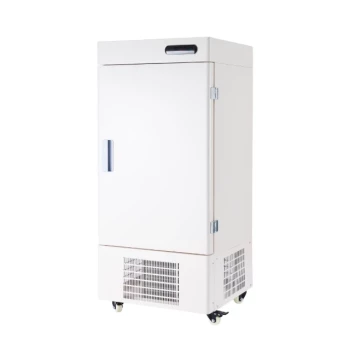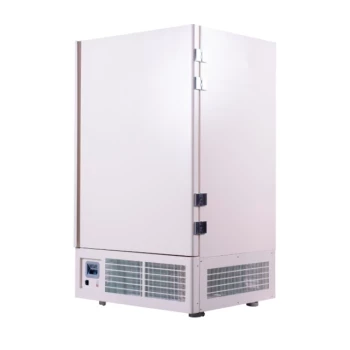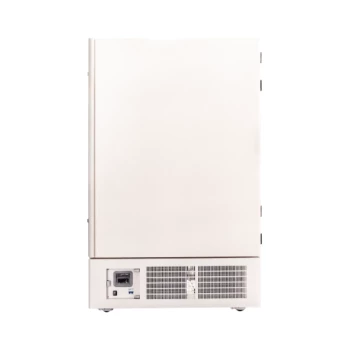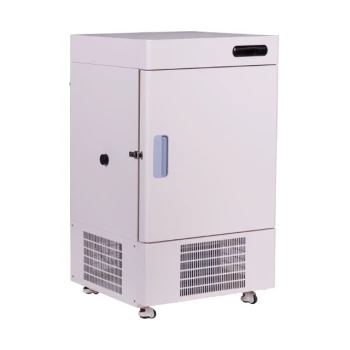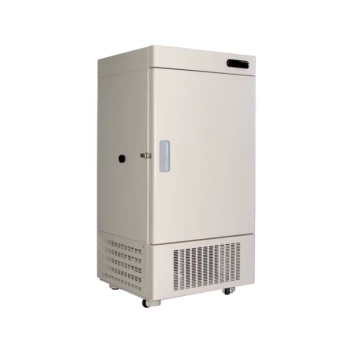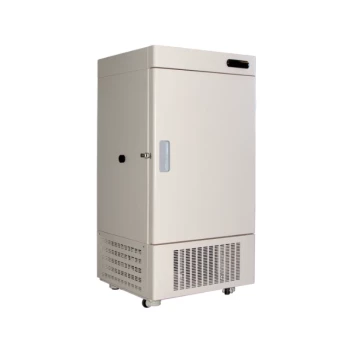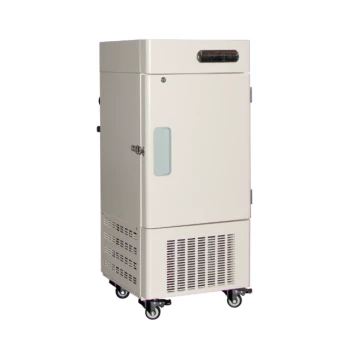At its core, an Ultra-Low Temperature (ULT) freezer is a specialized device that provides stable, long-term cryopreservation for critical biological samples in a clinical laboratory. By maintaining temperatures between -80°C and -86°C, these freezers effectively halt biological activity, preserving the integrity of materials like plasma, serum, DNA, RNA, and tissue samples. This function is indispensable for accurate disease diagnosis, genetic testing, and clinical research.
A ULT freezer is more than a simple storage unit; it is a critical risk management tool. Its primary role is to safeguard the scientific and diagnostic value of irreplaceable biological assets, thereby ensuring the reliability and reproducibility of all subsequent clinical work.
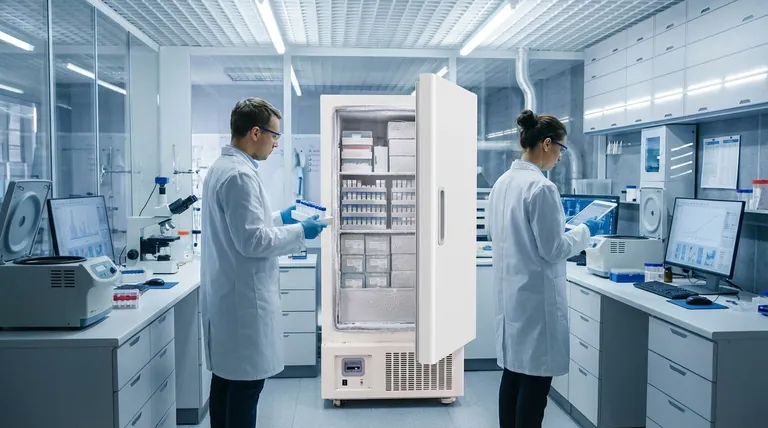
The Core Function: Halting Biological Decay
The fundamental value of a ULT freezer lies in its ability to create an environment where the molecules of life are effectively frozen in time. This preservation is the bedrock of modern clinical analysis.
Preventing Molecular and Cellular Degradation
Many biological components, especially sensitive molecules like RNA and proteins, are rapidly broken down by enzymes at warmer temperatures. Storing samples at -80°C or below effectively stops this enzymatic activity. This ensures that the sample analyzed tomorrow or next year is virtually identical to the one collected today.
Enabling Long-Term Biobanking
ULT freezers are the cornerstone of biobanking. They allow laboratories to store patient samples for months or even decades. This capability is essential for longitudinal studies, future diagnostic verifications, and building vast repositories of specimens that can be used for future research initiatives.
Supporting Diverse Clinical Applications
The stability provided by ULT freezers supports a wide spectrum of essential laboratory functions. This includes storing viral cultures for vaccine research, preserving tissue samples for pathology, and holding plasma and serum for endocrinology, oncology, and infectious disease testing.
Understanding the Trade-offs and Operational Realities
While essential, integrating ULT freezers into a laboratory workflow involves practical considerations. Understanding these trade-offs is key to managing them effectively.
The Critical Cost of Temperature Instability
The single greatest risk is temperature fluctuation or outright failure. A brief warm-up can compromise or destroy years of work and an entire collection of irreplaceable patient samples. This makes reliability, monitoring, and alarm systems paramount features.
Energy Consumption and Heat Output
ULT freezers are energy-intensive devices that run 24/7. Their compressors generate significant heat and noise, which must be factored into the design and HVAC capacity of the laboratory space. Modern units increasingly focus on energy efficiency to reduce both operational costs and environmental impact.
Sample Management and Accessibility
A freezer's internal capacity is only as useful as its organization. Without efficient racking systems and a meticulous inventory, finding a specific sample can become a time-consuming task that exposes other samples to undesirable temperature changes as the door remains open.
Making the Right Choice for Your Goal
Selecting a ULT freezer requires balancing your lab's specific application with operational priorities.
- If your primary focus is preserving unique, long-term research samples: Prioritize units with redundant cooling systems, advanced temperature monitoring, and the most stable performance specifications.
- If your primary focus is high-throughput diagnostic workflow: Emphasize capacity, intuitive inventory management systems, and rapid temperature recovery after door openings.
- If your primary focus is operational efficiency and sustainability: Closely compare energy consumption ratings (kWh/day) and features designed to minimize your lab's carbon footprint and utility costs.
Ultimately, a ULT freezer is a foundational investment in the integrity of your data and the future of your clinical mission.
Summary Table:
| Role & Function | Key Benefit |
|---|---|
| Halts Biological Decay | Preserves molecular integrity of samples for long-term storage. |
| Enables Biobanking | Supports longitudinal studies and future diagnostic verification. |
| Supports Diverse Applications | Essential for pathology, virology, oncology, and genetic testing. |
| Critical Risk Management | Safeguards irreplaceable samples, ensuring data reliability. |
Ensure the integrity of your clinical samples with a reliable ULT freezer. KINTEK specializes in providing high-performance lab equipment, including energy-efficient ULT freezers designed for the demanding needs of clinical laboratories. Our solutions help you safeguard critical biological assets, from plasma and serum to DNA and tissue samples, ensuring your diagnostic and research outcomes are accurate and reproducible. Contact us today to find the perfect preservation solution for your lab's mission – Get in touch!
Visual Guide
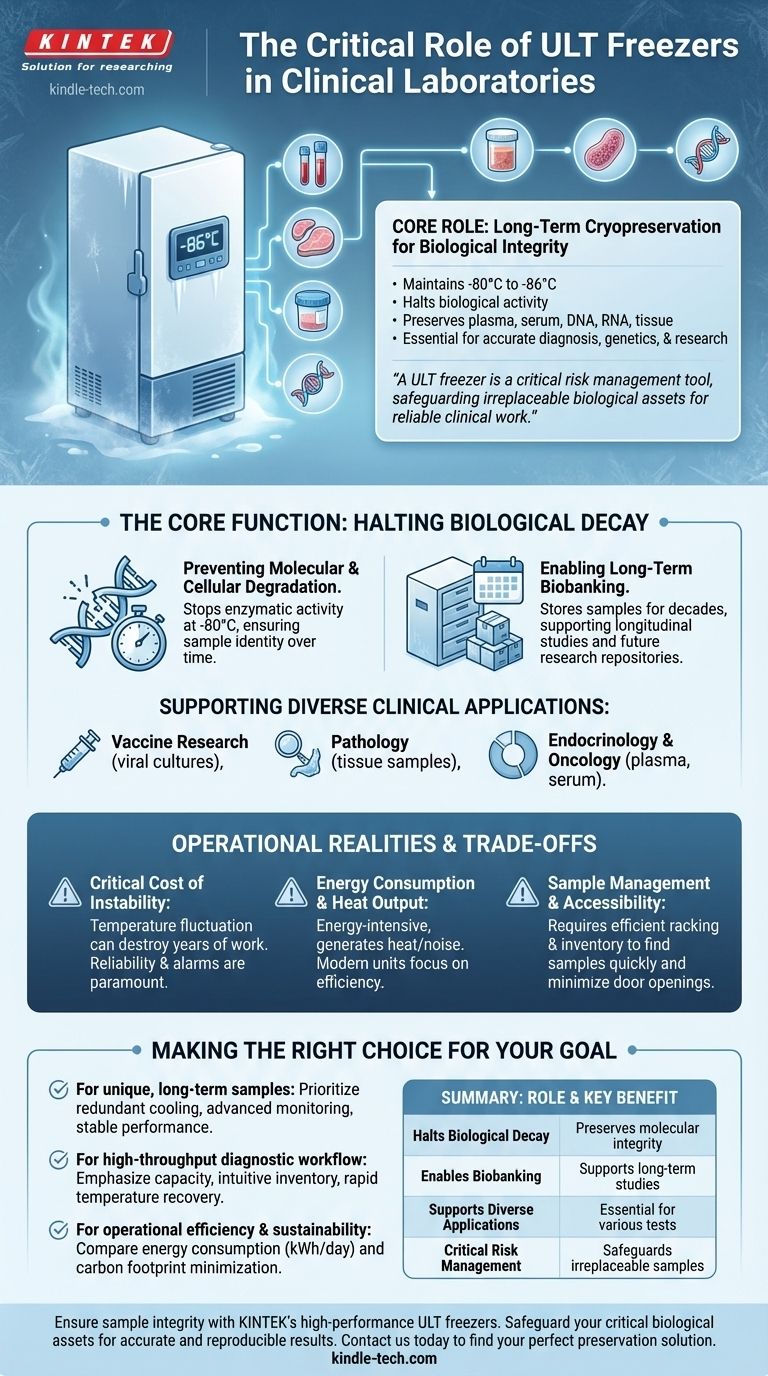
Related Products
- 408L Advanced Vertical Laboratory Ultra Low Temperature Freezer for Critical Research Material Preservation
- 508L Advanced Vertical Ultra Low Temperature Freezer for Critical Laboratory Storage
- 58L Precision Laboratory Ultra Low Temperature Upright Freezer for Critical Sample Storage
- 158L Precision Vertical Ultra Low Freezer for Laboratory Applications
- 808L Precision Laboratory Vertical Ultra Low Temperature Freezer
People Also Ask
- What are the recommendations for storing mRNA vaccines in ultra-low temperature freezers? Ensure Absolute Stability at -80°C
- How is temperature controlled in ultra low temperature freezers? A Guide to Stable -80°C Storage
- What is the purpose of ultra-low temperature (ULT) freezers? Preserve Critical Biological Samples
- How does fast temperature recovery benefit ultra-low freezers? Protect Sample Integrity and Lab Efficiency
- How are advancements in compressor technology and refrigerant fluids improving ULT freezers? Boost Efficiency & Cut Costs
